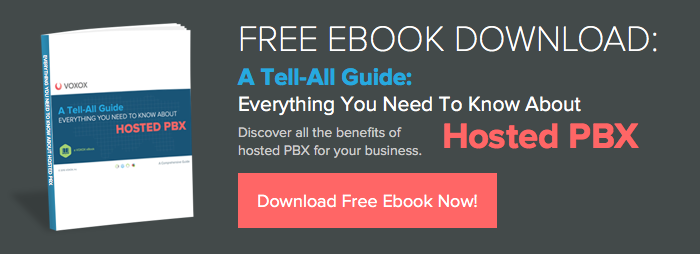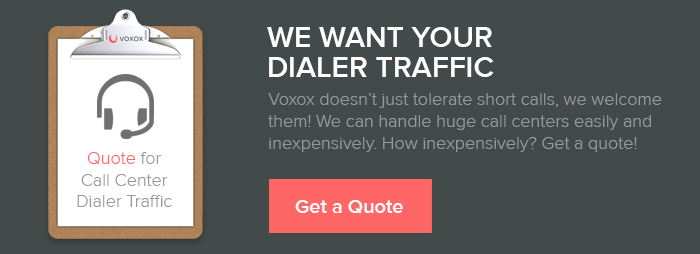When a call center is shopping around for a carrier to provide them with phone service, they're likely to encounter prices so high that it seems like carriers don't want them as customers. And it's often true! Carriers dont like dialer traffic for four primary reasons.

1 Call centers that use dialers to generate outbound calls generally have a much lower ASR (Answer/Signal Ratio) than normal calls. ASR for normal business and residential traffic is northwards of 70%, as relatively few people dial bad numbers and almost everyone has voicemail so busy signals have mostly become a thing of the past. Call centers, on the other hand, often buy out-of-date (and therefore inexpensive) lists of phone numbers, so an ASR of 50% or below is more the norm. That means carriers use up signaling and switch resources for no revenue at least half the time on this traffic.
2 Dialer traffic has a very short ACD (Average Call Duration), also known as ALOC (Average Length of Call). Of the calls that are answered, a high percentage are picked up by voicemail or a person who has no desire to talk to the call center operator about whatever widget or policy theyre trying to sell. These calls all get dropped immediately, resulting in as much as 50% of answered calls being 6 seconds or less. Carriers use up signaling and switch resources for very little revenue per call.
3 Dialer applications can generate a huge number of calls within a very short period of time. This can overwhelm the carriers network capacity, meaning that normal, much higher revenue-per-call customers might end up not being able to make or receive calls if the carrier is completely busy serving the often-not-answered calls of the call center.
4 Overwhelming a network can be a particular problem during election season when a call center may target a given rural area that has relatively few phone lines. No carrier can afford to build a network that has the capacity to serve every single customer simultaneously. Most carriers figure that there will never be more than 1 customer in 10 actually using their phone even at peak usage, so if a call center launches 500 calls to a small town with 5,000 phone lines, every bit of capacity in that town will be used up by the call center, meaning no one in that town can place a call and no one outside the town can call in.
There are ways that a carrier can mitigate all four of the above issues, taking a resource-draining pigs ear and turning it into a profit-making silk purse. Heres how:
- If a carrier has installed the latest in technology, their switching and network overhead is a small fraction of what old-technology carriers are burdened with. The resources needed to set up, support and tear down millions of calls per day go from being an overwhelming cost to being a relatively small cost of doing business.
- Same answer as #1 above.
- By limiting the number of simultaneous calls and the number of call attempts per second any single call center can have, network resources can never be overwhelmed. All large call centers have multiple carrier vendors, so refusing to take a call from them wont be a major problem like it would be to refuse a call from a residence or a business who has only a single communication vendor.
- Limiting the number of calls by area code (NPA) or even by exchange (NPA-NXX) completely eliminates the problem of overwhelming local networks.
This is how Voxox runs its business, terminating about 85M minutes of call center traffic each month to U.S., Canada, U.K., Australia, New Zealand, Singapore and India. And why can't every carrier do this? It's hard! It requires a lot of investment in technology, relationships with other carrier vendors that take time to develop, and a lot of time and attention. Because of this, We're able to gladly offer quality service to call centers at prices that are often the lowest in the industry.







